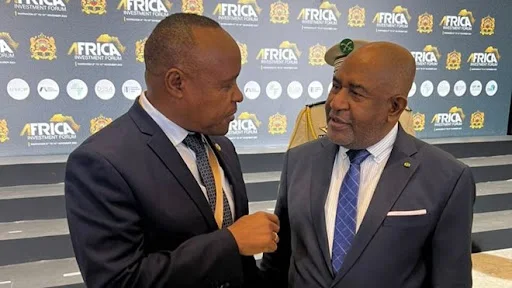Expanding Horizons:
Peter Mathuki, the Secretary-General of the EAC, recently revealed that the organization aims to extend its reach to cover the entire Horn of Africa. Ethiopia has expressed interest in joining the community following Mogadishu, signaling a promising era of growth for the regional alliance.
Membership Landscape:
The EAC, a cornerstone of the African Union, has witnessed rapid expansion with the recent inclusion of the Democratic Republic of the Congo. The existing member countries include Kenya, Uganda, Tanzania, Burundi, and Rwanda, boasting a combined population of around 300 million people. The potential addition of Somalia would further solidify the community's influence.
Private Sector's Role:
Dr. Mathuki emphasized the pivotal role of the private sector in fostering intra-regional commerce and integration. He highlighted that trade within the EAC has doubled to approximately 20 percent, reflecting a significant increase from less than 10 percent in the previous decade.
Infrastructure Investments:
One of the key factors driving regional integration is the focus on infrastructure development. Dr. Mathuki is actively promoting investments in projects along principal routes connecting the Great Lakes with the ports of Dar es Salaam and Mombasa. This strategic approach aims to enhance connectivity and facilitate smoother trade within the community.
Transport Corridors and AfCFTA:
Leaders from various African economic blocs, including Ecowas and Comesa, stressed the importance of transport corridors in uniting Africa and facilitating the implementation of the African Continental Free Trade Area (AfCFTA). The efforts to enhance connectivity through initiatives like the standard gauge railway linking the port of Dar es Salaam to Burundi and the Democratic Republic of the Congo are seen as game-changers for regional trade.
Economic Impact:
Burundi's Minister of Infrastructure, Dieudonne Dukundane, highlighted the transformative potential of the standard gauge railway, projecting significant cost savings. The railway is expected to save Burundi approximately $70 million in transportation costs, providing a substantial boost to the nation's economy.Conclusion:
As the East African Community anticipates Somalia's potential inclusion, the region is poised for unprecedented growth and collaboration. With a focus on infrastructure development and a commitment to fostering intra-regional trade, the EAC is positioning itself as a formidable force in Africa's economic landscape. The upcoming summit in Arusha holds the promise of further solidifying the bonds of this dynamic regional alliance.





Comments
Post a Comment